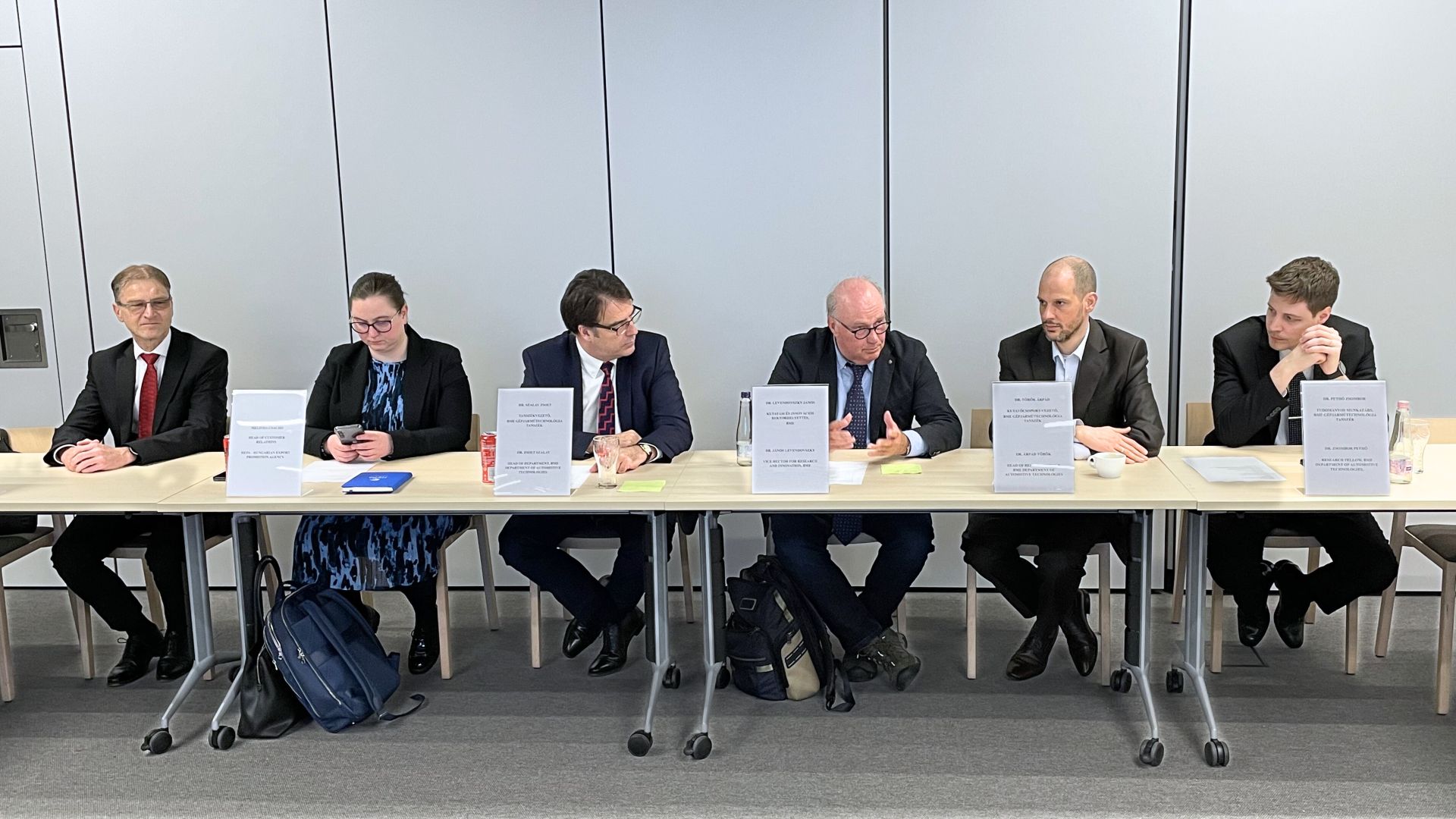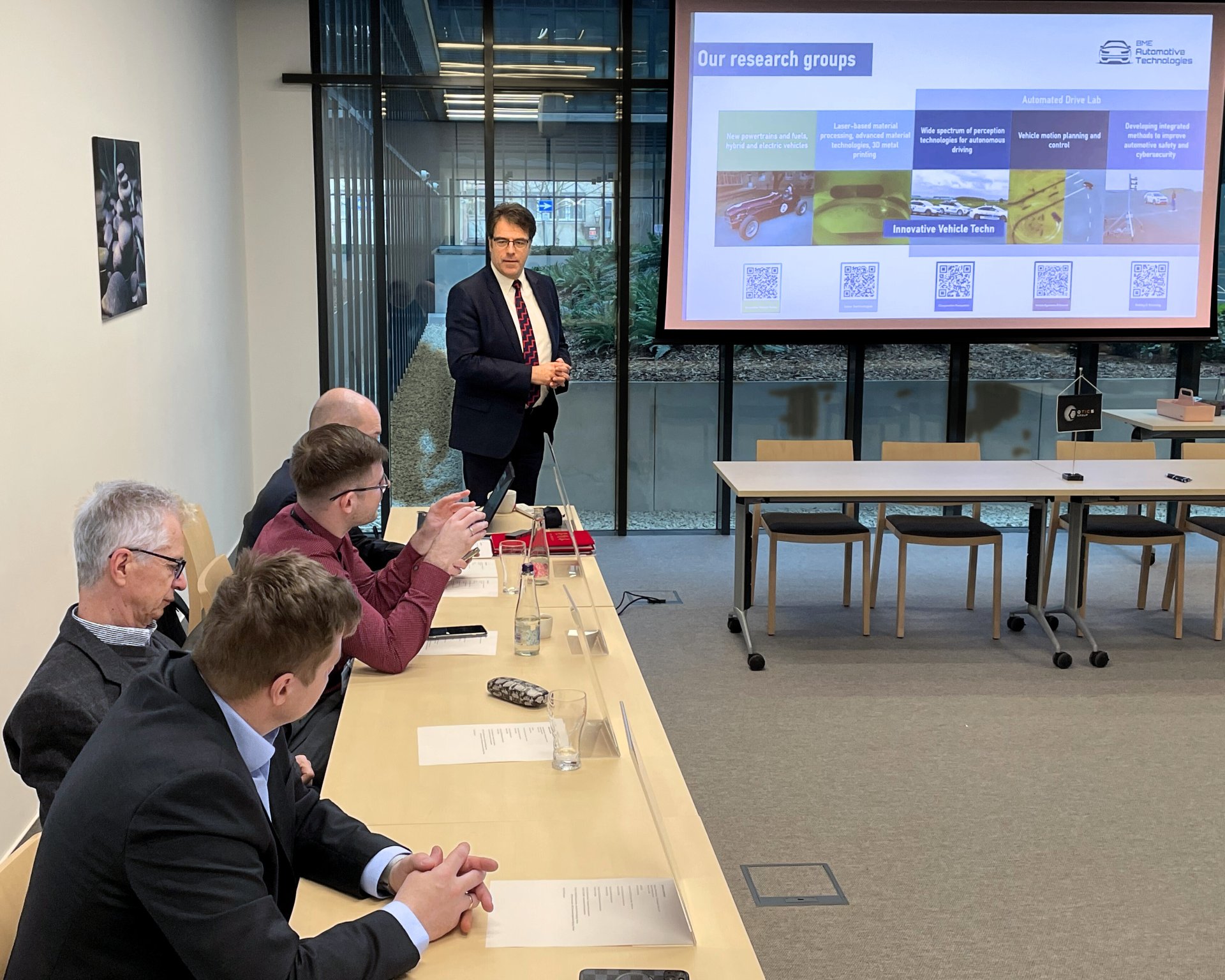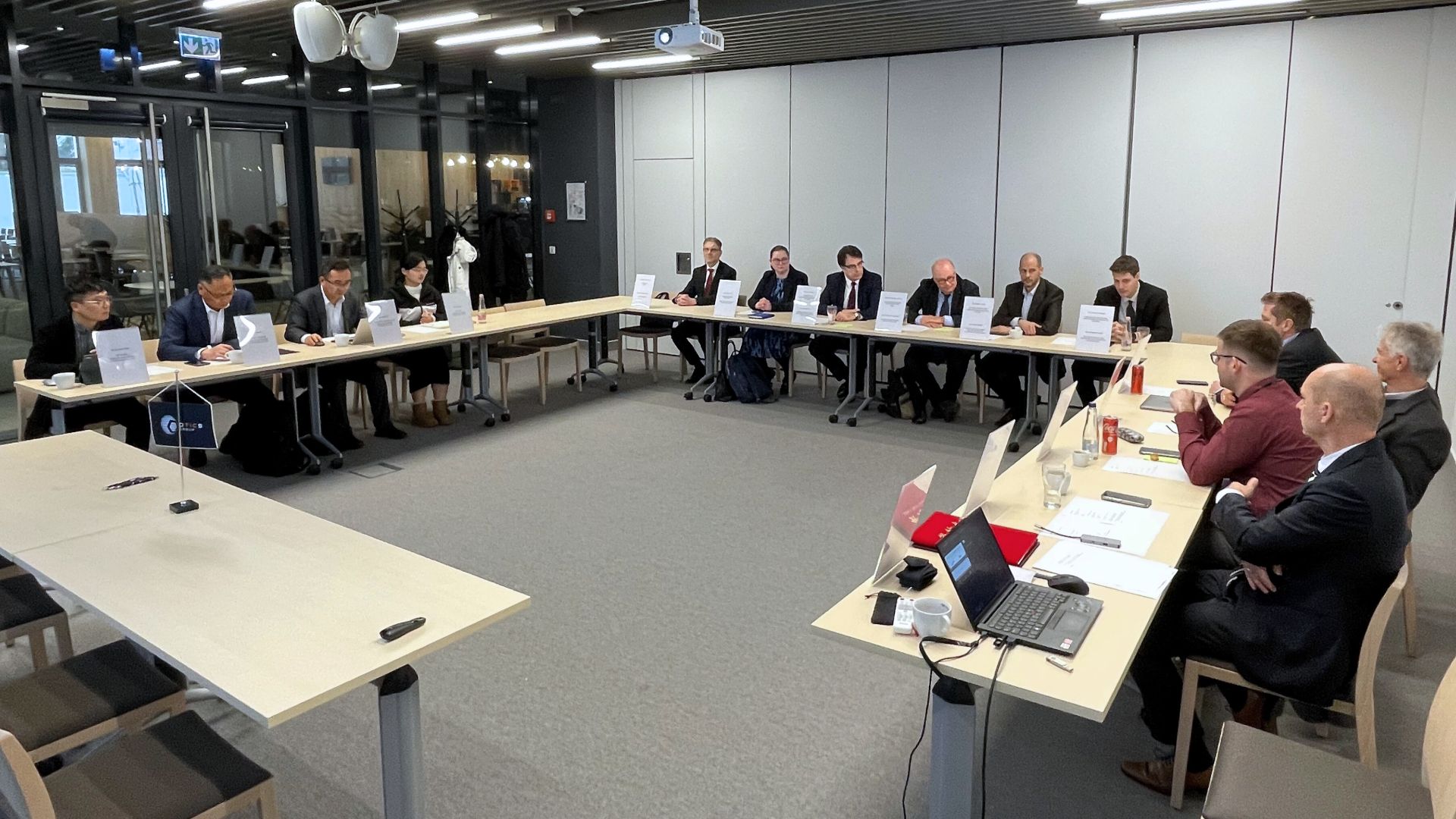The Department of Automotive Technologies at Budapest University of Technology and Economics (BME), in collaboration with researchers from the University of Szeged (SZTE) and experts from the Hungarian Research Network (HUN-REN), has published the results of their joint study in one of the world’s most prestigious scientific journals, Scientific Reports, published by Nature. The study, titled “Passenger physiology in self-driving vehicles during unexpected events“, comprehensively examines the physiological responses of passengers when faced with unforeseen situations—a crucial element for advancing the social acceptance of autonomous transportation.
Research Methodology and Key Findings
In this study, the researchers compared the reactions of passengers under unexpected events in both traditional, human-driven vehicles and self-driving vehicles. They conducted a series of measurements, including electroencephalography (EEG), eye-tracking, head movement analysis, and blinking frequency recordings under various driving conditions and unexpected road events.
Among the most significant findings was that passengers in self-driving mode exhibited lower affectivity values. This response is linked to a perceived lack of control over the vehicle’s movement. Additionally, multifractal analysis revealed that unexpected events—such as the sudden appearance of an obstacle—had a pronounced impact on both eye and head movement patterns in both driving modes, indicating an increased demand for visual information in critical situations.
An interesting observation was that, under normal driving conditions, passengers in the autonomous mode blinked less frequently, which may indicate heightened alertness due to the novelty of the technology. However, during unexpected events, the blinking frequency decreased further in both driving modes, suggesting a similar physiological response to perceived danger.
Multidisciplinary Collaboration Serving the Future of Transportation
This research, supported by the BME Department of Automotive Technologies, highlights the unique value of interdisciplinary cooperation by successfully bridging the gap between technical sciences and human-centered research areas. The collaboration brought together experts from different fields: from SZTE’s Cognitive and Neuropsychological Department, led by Dr. Zsolt Palatinus, and the SZTE Institute of Economics and Economic Development, headed by Miklós Lukovics and his team, to BME specialists including Dr. Zsolt Szalay—head of BME Automated Drive and the Department of Automotive Technologies—and former colleague and doctoral researcher Henrietta Lengyel. Their combined efforts enabled the integration of complex physiological measurements with advancements in automotive technology.
Dr. Zsolt Szalay, one of the authors of the publication, commented on the findings:
“For the widespread adoption of autonomous transportation, technological innovation alone is not sufficient. It is equally important to understand how people react to this new technology, especially during unexpected events. This research proves that the integration of technical and human sciences is indispensable for the successful development and social acceptance of future transportation systems.”
ZalaZONE: A Safe Environment for Pioneering Research
A key element in the success of this study was the safe research environment provided by the ZalaZONE test track. This facility enabled the creation of controlled yet realistic scenarios, ensuring that the experiments were reproducible and that the results were both reliable and scientifically valuable.
BME’s Commitment to Interdisciplinary Cooperation
The Department of Automotive Technologies at BME remains dedicated to fostering collaborations between universities, especially in the field of autonomous vehicles. The partnership with the University of Szeged is particularly special because it brings together completely different disciplines. Involving human-centered research areas in the study of autonomous vehicles deepens our understanding of the social and human aspects of technological development. Ultimately, the goal of technical and technological research is to serve humanity and society by enhancing the quality of life. The evolution of autonomous transportation not only requires technological innovation but also its social acceptance, and studies like this significantly contribute to that end.
The publication in Scientific Reports, published by Nature stands as a testament to the success of domestic research collaborations and reinforces Hungary’s position on the global map of autonomous vehicle technology development.


